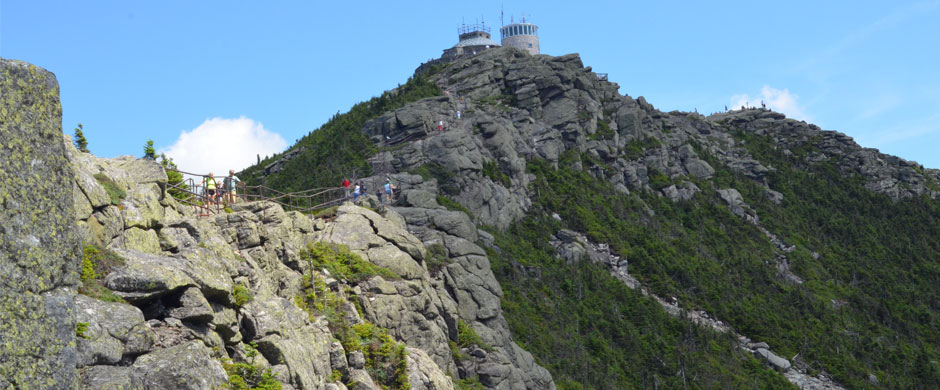
Whiteface Mountain and the Whiteface Veterans Memorial Highway are amazing tourist attractions. We all know this. Our friends come to visit in the summer and fall and we take them up the highway to the "castle"; as the snow hits it’s a trip up the gondola that becomes part of our personalized tour of the region. I dare say most of our guests think of Whiteface in terms of the Olympics. And, yes, that is a major part of their history - I mean, home to the ’32 and ’80 Olympics is quite the accomplishment and definitely garners its share of bragging rights. But there is so much more to talk (or write) about.
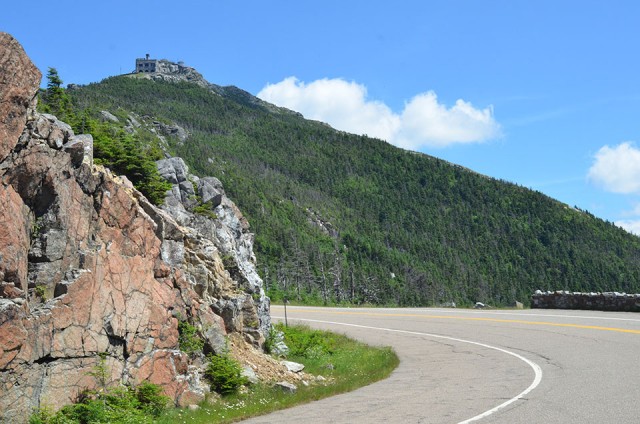
Looking back
I’m not a real skier. I’m trying to be. This year may be the year I really get out there and make a go of hitting the slopes. I mean, it is in my blood; I am Norwegian - well, by descent anyway, my grandfather was from Oslo (so I think that should count). I can remember my father telling stories about what a great outdoorsman his dad was. There were accounts of him and his comrades skiing down mountainsides and surprising invading troops as part of the War effort. As a child, these accounts painted vivid lasting impressions in my mind - I saw the heroes hurtling themselves through huge snowdrifts at the speed of lightning to thwart off the evil.
I am proud of my grandfather, although I never had the chance to meet him. My father followed in his footsteps and served in the Navy during the Korean War, my oldest brother was in the Air Force for the bulk of the '80s & '90s, and my nephew, Erik, has been serving in the Army since near the turn of the century. Erik was stationed at Fort Drum in Watertown for a while, and it was at that time that I learned of the connection between the 10th Mountain Division and Whiteface Mountain. It intrigues me that so many modern-day troops have been trained in this region, to do the same kind of skiing that my grandfather did over three-quarters of a century ago.
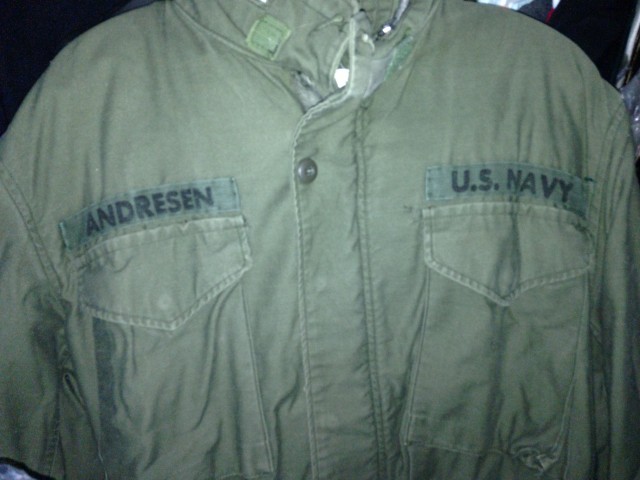
So, living in this region, it seems fitting on this Veteran’s day - during the post-Highway/pre-Mountain season - to take some time and pay tribute to the strong local connection of honoring the troops in our region. And, with that said, here I go, delving in to educate myself and find out a few basic facts on the history of the Veterans Memorial Highway and the training of the 10th Mountain Division at Whiteface.
(My disclaimer: These are facts I have gathered via the Internet and quick local research. There is a lot of information out there, so I chose just 5 facts to start us off! I know there are a few very knowledgeable local historians that can give much more in-depth explanations on this subject. After my research, I am actually pretty intrigued to learn more about the history of the region. If you are interested in learning more about the history of the region - plan a trip and visit our historic sites on your next visit!)
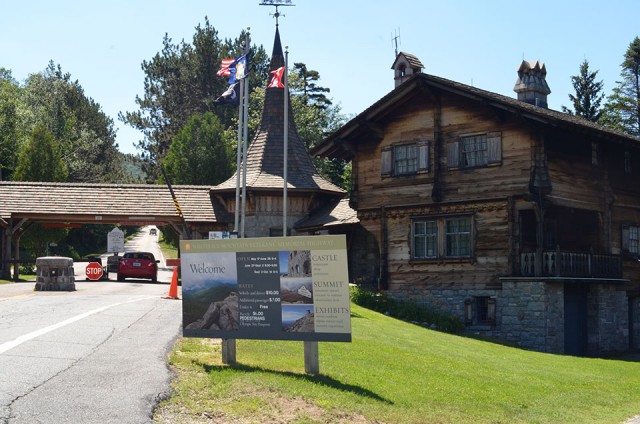
5 facts about the Veterans Memorial Highway that I didn’t know - did you?
1) My first question was simply: Why a highway up Whiteface?
The answer was actually not what I expected at all. It seems an entrepreneur from Saranac Lake, M.A. Leonard, first came up with the idea. As reported in the Adirondack Daily Enterprise on November 10, 1967:
About 1927 M.A. Leonard of Saranac Lake and his son Ralph drove up Whiteface on a lumber road called Therrieu in a Maxwell automobile... Struck by the beautiful view of the Adirondacks, Canada and Vermont, they stopped in to see Mrs. Louise Parrish on the Franklin Falls Road to tell her of their trip... They sat together on the porch of the house…and began to discuss the possibility of getting a road built to the top of Whiteface Mountain... Mrs. Parrish went to Malone and got the support of the Malone Evening Telegram for the project and all three started bombarding politicians and highway officials in Albany with their dream of a highway up Whiteface... This small group never let up until the bill had passed the legislature allowing the building of the highway and in fact continued to fight for the construction of the elevator to the summit and the castle at the end of the highway. (Sadly, M.A. Leonard died at age 90, a mere six months before the highway opened.)
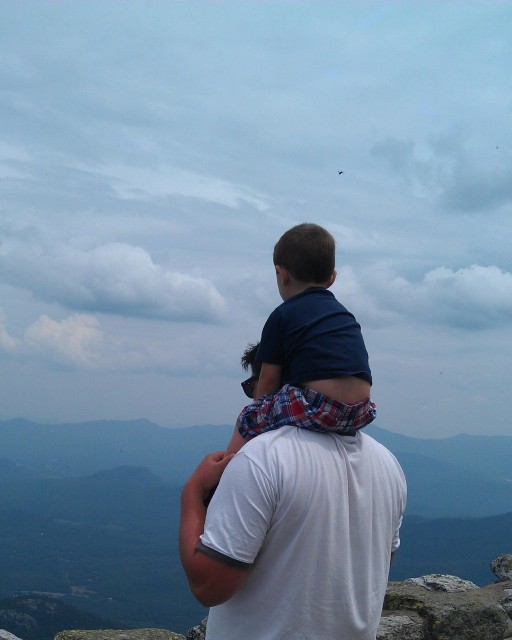
2) Okay, so now I know how the idea for a highway was hatched, but what was the connection between construction of the Highway and it being dedicated to honor the veterans?
In the 1920s the owner of the land where the proposed road was to be built gave the land to New York State on the stict condition that it would be named in honor of the World War I veterans. Governor Franklin Delano Roosevelt signed the dedication for the highway in 1929.
In 1985, the road was rededicated to honor veterans from all wars.
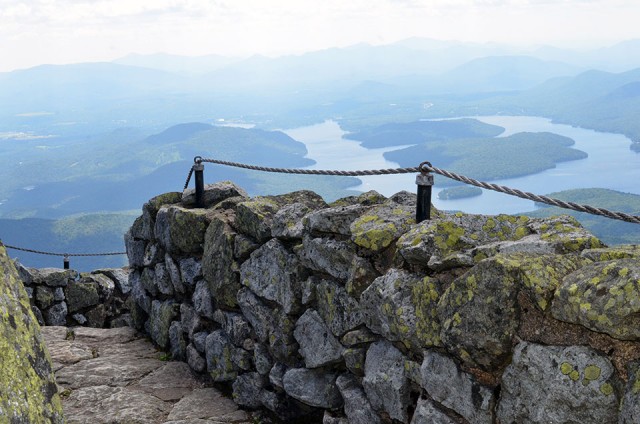
3) While researching my facts, my co-worker, Jasen had an interesting tidbit to share about the Highway, so I’m making that my number 3 cool fact.
Many people believe that due to the timing of their construction, the Whiteface Castle and Veterans Memorial Highway projects were Depression Era public works projects. This is incorrect - these projects were not funded by FDR’s New Deal, they were privately funded by the state of New York. What an amazing investment.
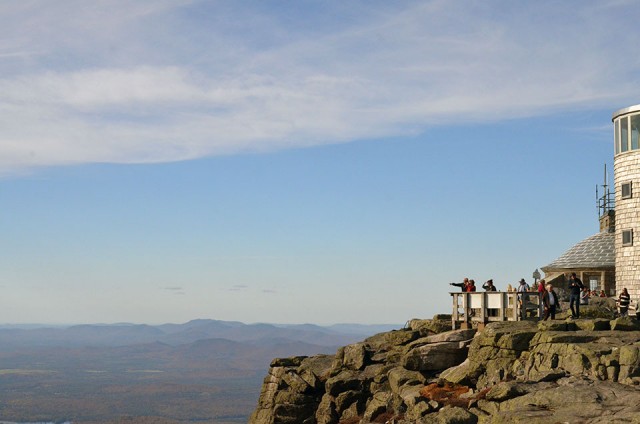
4) How long does it actually take to make a 7.96 mile highway?
While plans for the highway were presented in 1929, construction began in 1931 with work continuing until snow impeded the progress in December. The project began again in March and continued in the same fashion for the next several years. The highway was completed in 1935, and officially opened on July 20th (July 17th cited by some sources). On September 14, 1935, it was formally dedicated by Roosevelt, now President of the United States, at a ribbon-cutting ceremony. In all, the road took four years to build and cost $1.25 million.
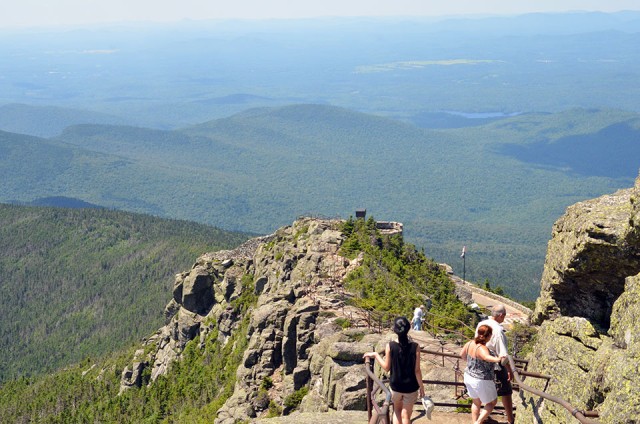
5) Ok, so how much traffic would a scenic highway in 1935 be expected to have?
During the first season, tolls amounted to $45,000. The peak day of the season saw 1,161 visitors up the mountain. The toll for driving the road was $1 per car and driver, an additional $1 for each passenger. I’m not great at math, but seems like that is a good deal of visitors for a 3 month period!
A fun comparison - the 2012-2013 season saw 72,579 visitors and brought in $556,842. TIckets now are $10 vehicle & driver, $7 each addtional passenger.
All in all, I am so glad that I live mere minutes away from one of the most beautiful scenic routes in NY. And, now when I hike with my guests to the top of Mountain, I will have a few extra facts to share!
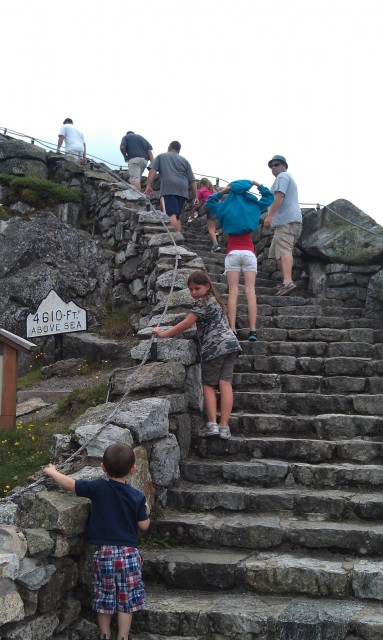
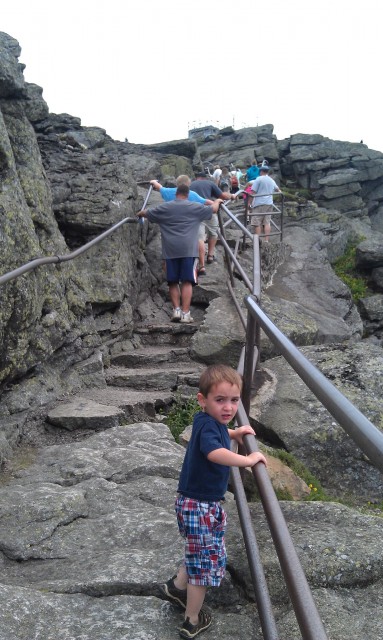
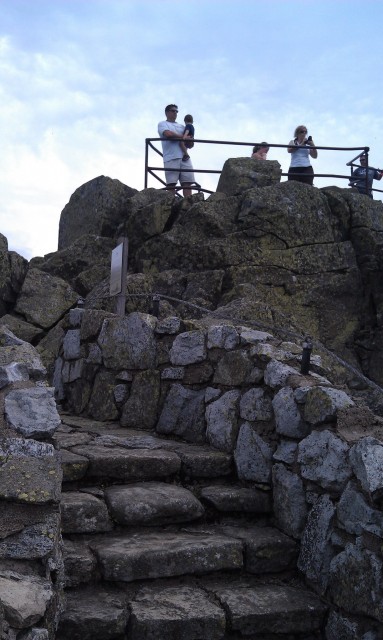
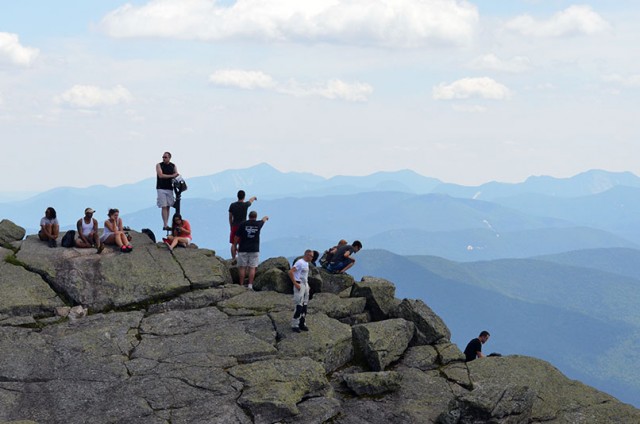
5 Facts…The 10th Mountain Division and Whiteface Mountain
(Most of the Information for this section was gleaned directly from the Fort Drum website.)
1) How did the 10th Mountain Division come about?
In November 1939, the Soviet Union invaded Finland. Finnish soldiers on skis annihilated two tank divisions, humiliating the Russians. Charles Minot (Minnie) Dole, the president of the National Ski Patrol, saw this as a perfect example of why the U.S. Army needed mountain troops. Dole spent months lobbying the War Department to train troops in mountain and winter warfare. In September 1940, Dole was able to present his case to General George C. Marshall, the Army Chief of Staff, who caused the Army take action on Dole’s proposals to create ski units.
On December 8, 1941, the Army activated its first mountain unit, the 87th Mountain Infantry Battalion (Later became an entire Regiment) at Fort Lewis, Washington. The unit was dubbed "Minnie’s Ski Troops" in honor of Dole. The 87th trained on Mount Ranier’s 14,408 foot peak. The National Ski Patrol took on the unique role of recruiting for the 87th Infantry Regiment and later the Division. After returning from the Kiska Campaign in the Aleutian Islands near Alaska the 87th formed the core of the new Division.
10th Mountain Division - World War II: This unique organization came into being on July 13, 1943, at Camp Hale, Colorado as the 10th Light Division (Alpine). The combat power of the Division was contained in the 85th, 86th, and 87th Infantry Regiments. The Division’s year training at the 9,200 foot high Camp Hale honed the skills of its soldiers to fight and survive under the most brutal mountain conditions.
On June 22, 1944, the Division was shipped to Camp Swift, Texas to prepare for the Louisiana maneuvers of 1944, which were later canceled. A period of acclimation to a low altitude and hot climate was necessary to prepare for this training.
On November 30, 1945, the 10th Mountain Division was disbanded.
From here there is a lot of additional information about the years leading up to the 10th being reactivated from 1948-1958 before it was disbanded again.
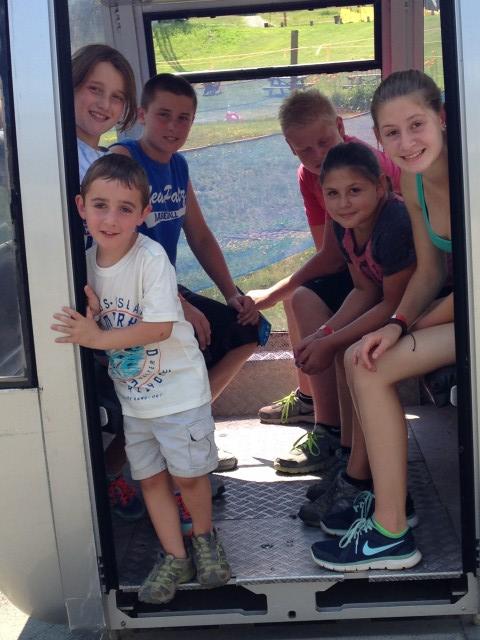
2) What happened to the veterans after the 10th initially disbanded in November 1945?
Veterans of the 10th Mountain Division were in a large part responsible for the development of skiing into a big name sport and popular vacation industry after World War II. Ex-soldiers from the 10th laid out ski hills, built ski lodges, designed ski lifts and improved ski equipment. They started ski magazines and opened ski schools. Vail, Aspen, Sugarbush, Crystal Mountain, and our very own Whiteface Mountain are but a few of the ski resorts built by 10th Mountain veterans.
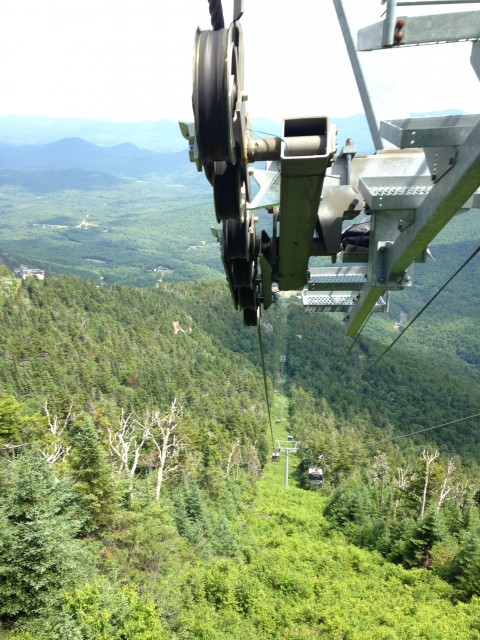
3) When did the connection to training at Whiteface begin?
10th Mountain Division (Light Infantry) - 1985 to Present: The Division was officially reactivated on February 13, 1985, at Fort Drum, New York as the 10th Mountain Division (Light Infantry). The division commander after reactivation was Brigadier General William S. Carpenter. The 10th was the first division of any kind formed by the Army since 1975 and the first based in the Northeast US since World War II. The 10th Mountain Division (LI) was designed to meet a wide range of worldwide infantry-intensive contingency missions. Equipment design was oriented toward reduced size and weight for reasons of both strategic and tactical mobility.
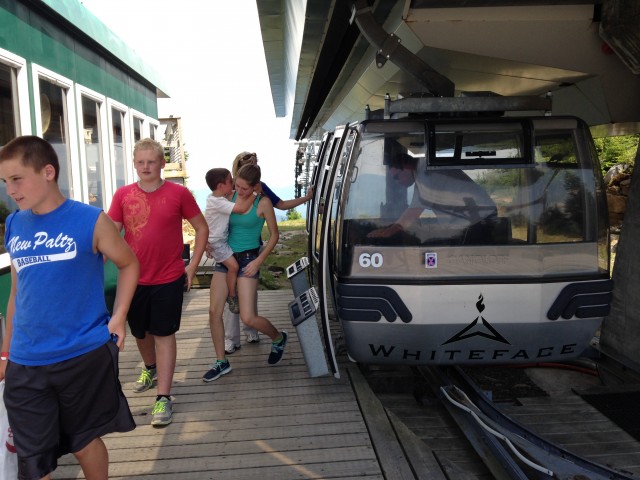
4) Learning more about the Annual Memorial Service & plaque on Whiteface…
The Whiteface Mountain memorial ceremony has been conducted since 1988 as a method to honor the World War II 10th Mountain Division veterans who fought in the Italian Apennines Mountains and Aleutian Islands during World War II and the modern day 10th Mountain Division Soldiers serving throughout the world. A memorial plaque honoring the 10th Mountain Division is located on the summit of Little Whiteface Mountain.
At the 2014 ceremony, Colonel David S. Doyle, currently of the 10th Mountain Division, said it was an honor to attend. “This place where we stand is a fitting tribute to the legends of World War II who defeated the Germans in Italy,” Doyle said. “Their efforts set subsequent mountain warriors up for success. They led the way for those who then followed and fought in the sands of Iraq during Desert Storm, who persevered in the streets of Mogadishu, Somalia, and for those who are part of the post Sept. 11th generation that’s fought in the Iraqi cities and the mountains of Afghanistan.”
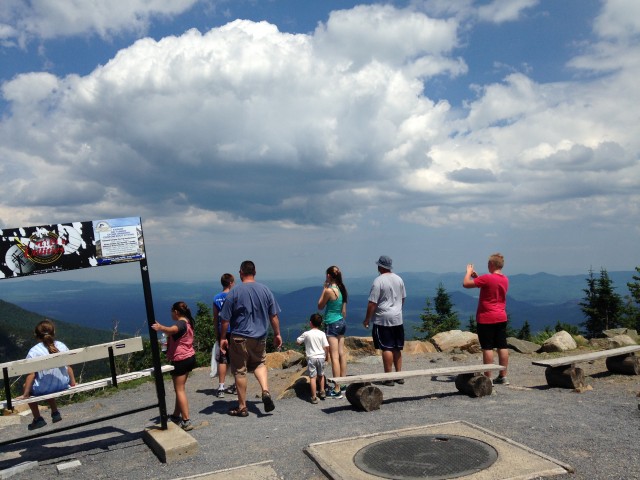
5) The most outstanding fact I learned about the 10th Mountain Division?
Simple - The 10th Mountain is the most deployed division in the U.S. Army.
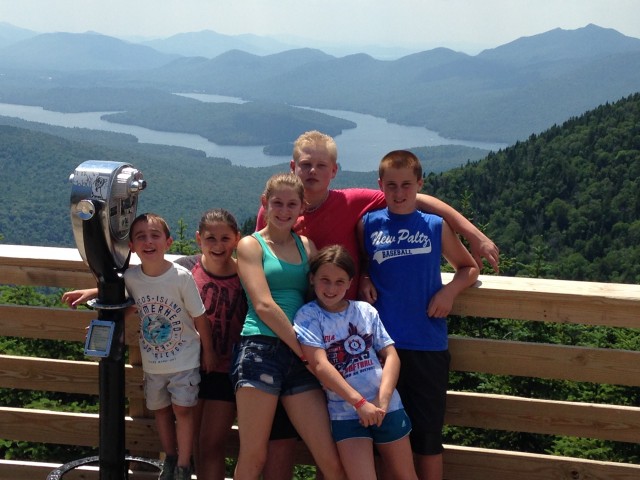
FUn Bonus Fact
Ok - so this actually something I found really interesting in my search for fun new facts - and in the many, many times I have been up the toll road, I have never stopped to check this out! Lake Stevens, the beautiful little pond which sits directly off the the highway next to the toll house, is now on my to-do list. It is handicap accessible, and there is a forest trail that is sized for wheelchairs and strollers. On a leisurly 10-minute or so walk around the pond you will encounter all 34 species of native northern Adirondack trees - inlcuding 20 types of hardwoods and 14 conifers. The pond is stocked annually to provide fishing opportunities, and the shores are graded to be especially friendly for children and visitors with disabilities. And, be sure to bring a picnic - this is a beautiful spot to stop and enjoy a snack!
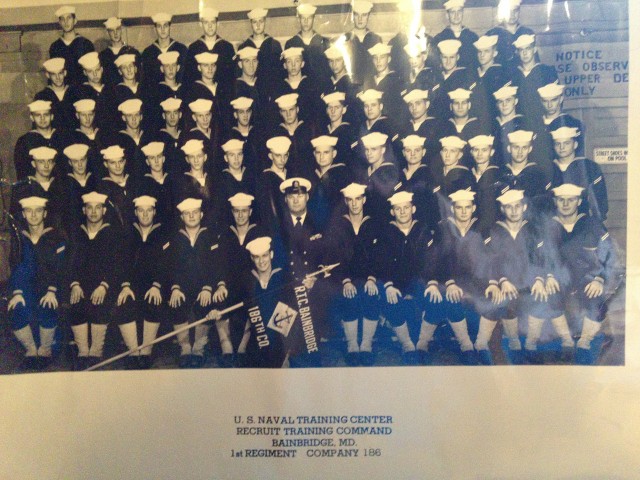
Thank You
Throughout the years I have visited many military bases throughout the country. It always strikes me the amount of dedication, commitment, and sacrifice both current and past veterans have shown so that I can enjoy life as I script it. On this Veteran’s Day, as on every day, I thank them for their service, and my freedom.
